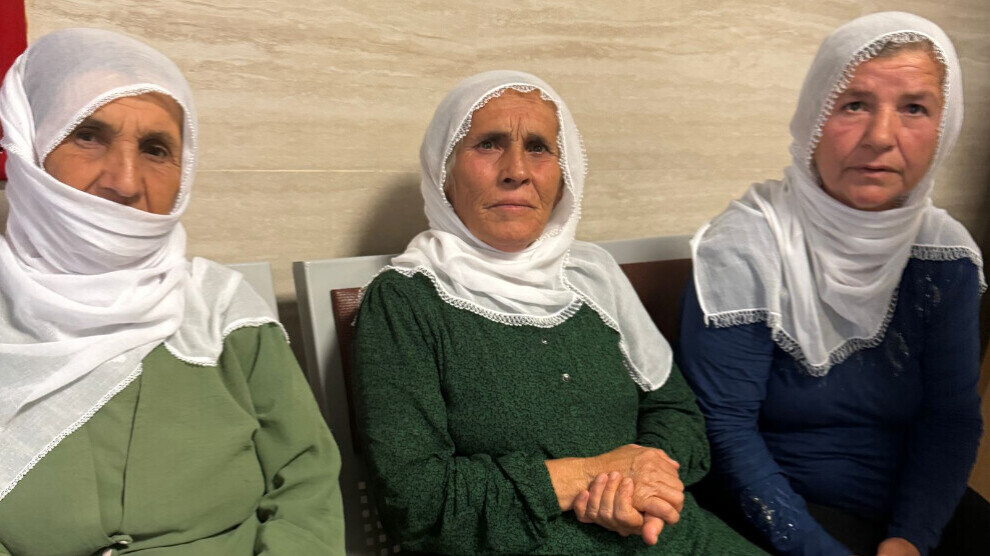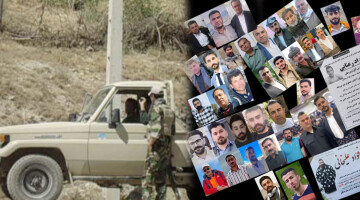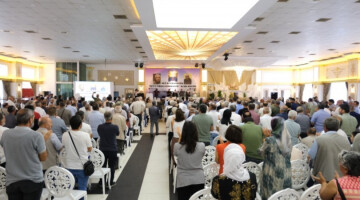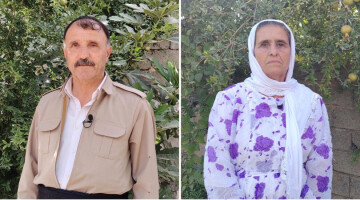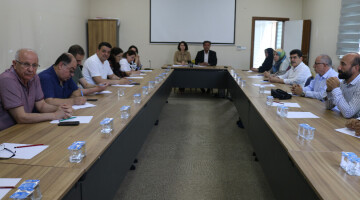In the district of Gercüş (Kercews) in the province of Batman (Êlih), a military operation against the guerrillas took place from 22 June to 6 July. The village of Bilêxşê was besieged for days and finally stormed by soldiers. The residents had to report to the mosque, after which their houses were searched. Eleven people were beaten and taken into custody in the village, and three were also sent to prison in Batman. The arrested were initially released after interrogation, but at the request of the Attorney General's Office, three days later, on 13 July, an arrest warrant was issued against nine villagers for supporting an illegal organization. According to their lawyer, Yunus Bağış, the file does not contain a single concrete piece of evidence for the accusation.
The Kurds sent to prison are Emine Kaya (54), Nezete Bölek (58), Sare Kaya (59), Zübeyir Şimşek (41), Habib Kaya (61), İsa Gitmez (60), Nedim Kaya (62), Yusuf Bölek (68) and Murat Gelir (24) – the latter is the head of the Bilêxşê community.
Women abused in prison
The three arrested women, Emine Kaya, Nezete Bölek and Sare Kaya, were abused when they were admitted to the Batman prison, according to the DEM party's women's council. The DEM women's council said that the women resisted a degrading strip search and were held in a temporary ward ever since. On the first day, they were only given dry bread to eat, and the blankets and foam mattresses they were given were dirty and were only replaced days later. Their cell was overheated and their request for a fan was refused.
A written request had to be made for all necessities, but the three women could neither read nor write. On 16 July, their cell was searched and ransacked twice by guards at two-hour intervals. During the measure, the women were locked in the courtyard for hours in scorching heat. The guards repeatedly hit the cell door with hard objects to keep the women in peace. They were also forced to line up in military formation for a census. The women's council of the DEM party described the treatment of the three women as a measure of enemy criminal law and demanded their release.
Thirty years of oppression
The story of 59-year-old Sare Kaya is typical of the lives of many Kurdish women in Turkey. In the 1990s, Bilêxşê, like thousands of other villages, was burned down by the Turkish state. She and her family moved to Nusaybin (Nisêbîn), where her brothers Mecit and Hemdin were murdered by paramilitaries. One of her husband's brothers was murdered by Hizbulkontra in Batman. One of her children joined the PKK. Because the family continued to face repression in Nusaybin, they initially moved to Batman in the early 2000s.
Four years ago, the family built a new house in Bilêxşê and returned to the village. Since the last military operation and the arrests, Bilêxşê has been empty again, the animals are unattended and so are the gardens and fields are.

